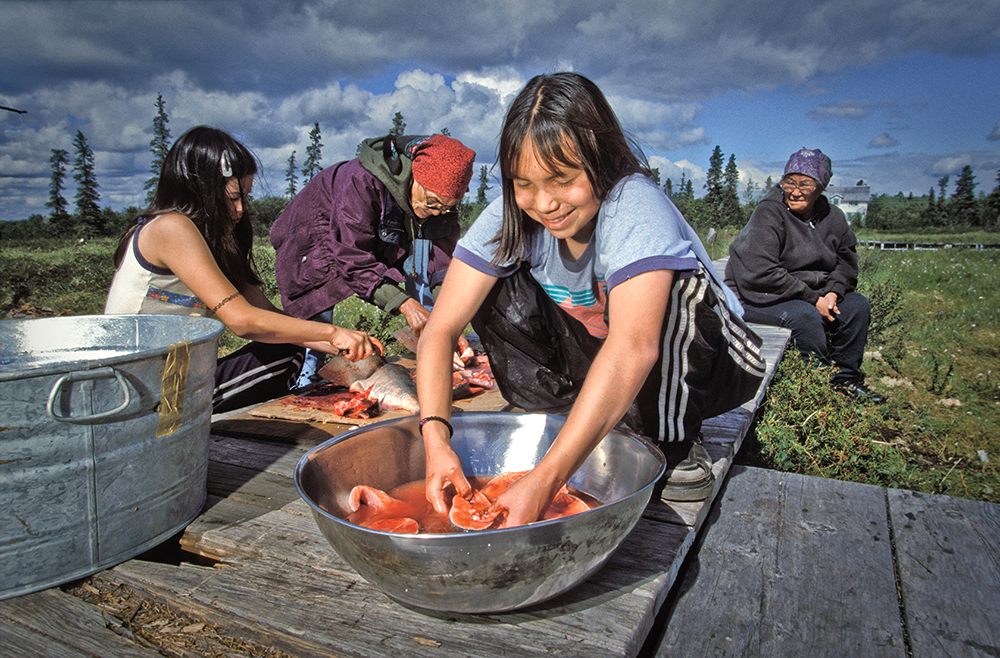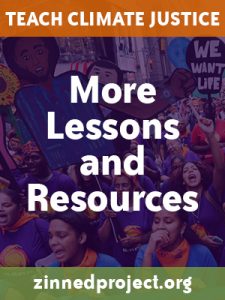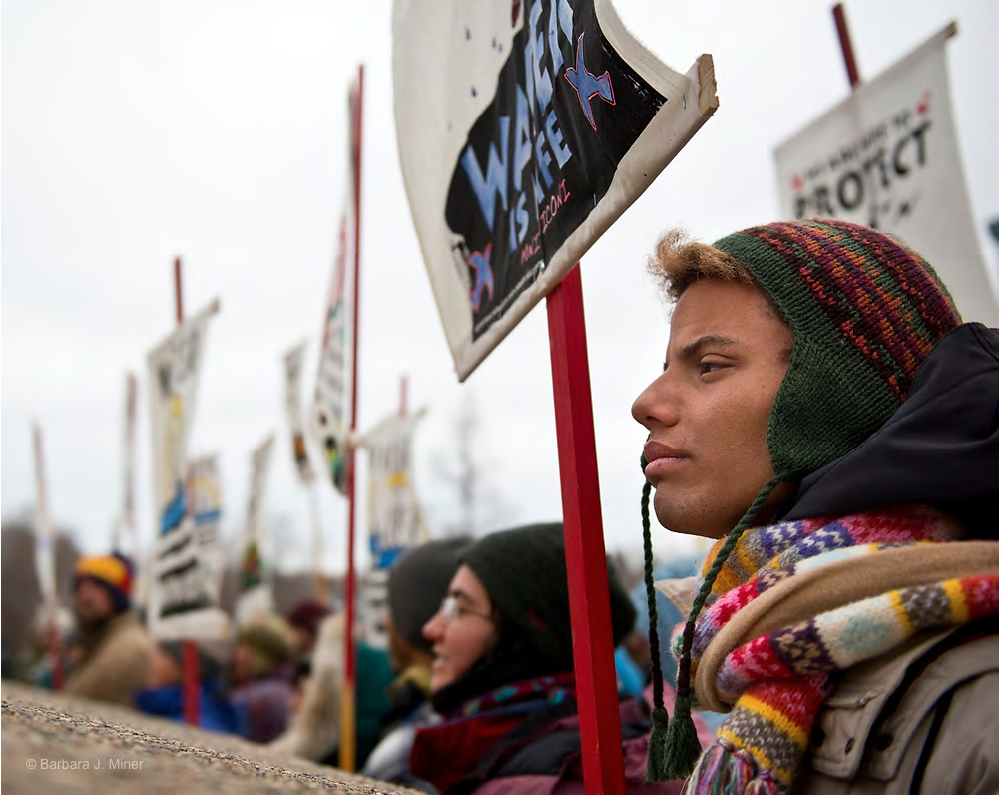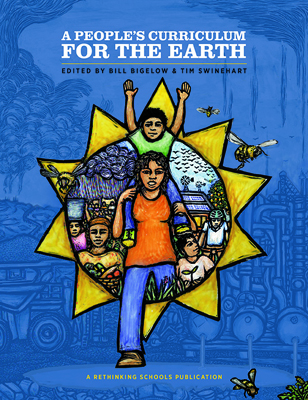
Yup’ik children learn traditional methods of preparing salmon. Source: Clark Mishler.
By Jill Howdyshell
I teach 6th grade in a small Yup’ik fishing village in southwestern Alaska. Alaska and other arctic regions are at the forefront of experiencing climate change. “The arctic is warming at twice the rate of anywhere else on Earth,” according to the National Oceanic and Atmospheric Administration’s Arctic Report Card. As the climate changes, the traditional ways of subsistence are threatened. Climate change is having a real and direct impact on this community now, yet the school and curriculum continue to be almost completely silent on the issue — and so much else that matters in my students’ lives.
My family moved to rural Alaska from Portland, Oregon, driven by a love for adventure, a need for employment, and a desire to make a positive impact. Arriving in 2013, we experienced one of the mildest winters in this Alaska region’s history. Dust built up on snowmobiles (we call them snow-goes) instead of snow. In desperation, some villagers began taking their snow-goes across the snowless tundra. Time and again, elders talked about how they had never seen weather like this.
In 2014, I arrived back in the village after summer break, and a beloved teacher and local resident greeted me with heart-sickening news: “There are no berries this year.” The tundra has to freeze for a certain length of time and to a certain depth for the tundra blackberries and salmonberries to regenerate. The practice of harvesting and preserving berries goes back hundreds of years, and all of my students talk about their experiences picking berries with their mothers or grandmothers. These days the berries are used in making the ever-popular akutaq (pronounced uh-GOO-dic) ice cream. In several “I Am From” poems, students included the line “I am from akutaq,” stressing the importance of berries to their personal identities.
 Our principal is a Yup’ik elder who left his village to get his education and returned to work in the school. He cares deeply about the students and community. I asked about the condition of the permafrost in the area. He didn’t know if there was any permafrost left. He told me that the next time someone dies I could go down to the cemetery and check where the excavator digs the hole to see if it hits frozen ground. He didn’t think it would. He said that Yup’ik people used to dig deep holes to store food, creating a freezer in the ground. We didn’t talk about the fact that permafrost holds vast amounts of carbon frozen in the ground. As the permafrost disappears, tons of carbon are released into the atmosphere, an example of the frightening “feedback loops” that will accelerate climate change as the planet warms.
Our principal is a Yup’ik elder who left his village to get his education and returned to work in the school. He cares deeply about the students and community. I asked about the condition of the permafrost in the area. He didn’t know if there was any permafrost left. He told me that the next time someone dies I could go down to the cemetery and check where the excavator digs the hole to see if it hits frozen ground. He didn’t think it would. He said that Yup’ik people used to dig deep holes to store food, creating a freezer in the ground. We didn’t talk about the fact that permafrost holds vast amounts of carbon frozen in the ground. As the permafrost disappears, tons of carbon are released into the atmosphere, an example of the frightening “feedback loops” that will accelerate climate change as the planet warms.
Download article to continue reading.
 This article originally appeared in the Summer 2015 issue of Rethinking Schools.
This article originally appeared in the Summer 2015 issue of Rethinking Schools.










Twitter
Google plus
LinkedIn